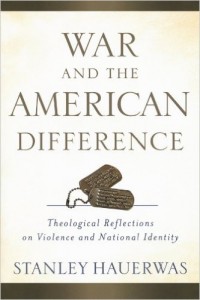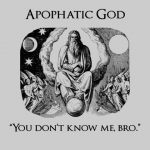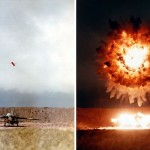So, I tracked down his email address, asked for a meeting–he agreed–and I showed up at the appointed time. He asked my interest in Bacon and I told him that I was working on a book about the images from Abu Ghraib and my own visual education. I told him that the book also considered film and literature, and then I clumsily tried to explain to him my thesis, which was something like, I’m curious about the influence of Bacon and David Lynch, and so many other artists and works of art, representing violence and atrocity, on me.
He said to me, “I would never ask that kind of question.” And that was pretty much it. He sat back in his chair and folded his hands. Before I left with my tail between my legs, I managed to ask him about his taste in film. He said that he had seen Million Dollar Baby and thought it was quite good.
Who knows what he thinks about American Sniper, it’s a very different movie, but it still has at its heart Clint Eastwood’s vision of the world, which I think is pretty well summed up by A.O. Scott’s review of Million Dollar Baby:
Mr. Eastwood’s universe is, as ever, a violent and unforgiving place, in which the only protections against nihilism are the professional regulation of brutality . . . and the mutual obligations of friendship.
In Million Dollar Baby, the “professional regulation of brutality” is the “sweet science” of boxing. In American Sniper it is the Military Code of Conduct and the unwritten, though perhaps more indelible, code drilled into soldiers during their training. Eastwood’s protagonist, Chris Kyle, is a Navy SEAL (an acronym for “bad motherfucker”) and so it makes narrative sense to include the notoriously brutal training that SEALs undergo. It’s a process that is meant to toughen you mentally and physically, and inculcate you with the values of the military, especially duty and brotherhood. The scene following training we see Kyle in a bar. The results are impressive: He is buff, gentlemanly, disciplined, and, as we’ll see throughout the film, a smooth operator of a sniper rifle. When Taya, the woman he will eventually marry, asks him if he really believes that what he’s doing will actually protect her and other American citizens, he says with sober seriousness, “Yea, Ma’am.”

So to answer your question “Does American Sniper break through the decent American standing against the forces of darkness stereotype?” I would have to say I think that there’s a kind of half-hearted attempt to do that, but it’s a confused attempt.
Let me explain: throughout the film Chris Kyle frequently uses the term “evil” and seems to think of evil as something that has taken root in the Iraqi people. He is convinced of this in a way that steels his resolve. Through the magnifying scope of his rile, Kyle watches as a woman passes a grenade to her young son of maybe 10 or 11 years-old. We agonize with Kyle as he tries to discern what he should do—are they a threat or not? SPOILER ALERT: He ends up shooting both the mother and the boy, and in the breathless, stupefying moments afterwards, he says something like “have you ever seen such evil?”
I’m not going to get into the nature of evil, but what I do want to get into is evil is a term that sounds good in the mouth of either side, and all kinds of things can be justified if you can successfully paint the other side as evil. That’s the argument I make in Good War; that we explain away the actions of our soldiers by calling them “bad apples,” but when it comes to our enemy, well then there is something inherently bad about them—there is something inherently disordered and unredeemable in their essence that makes them hate. And it is in this way we dehumanize the enemy.
Look, this is nothing new. This happens in every war—every. single. one. What is new-er, is the way that images of war can be disseminated around the world in a matter of seconds and that those images, which lack crucial context, can come to shape the way we think and imagine the justness of the war and the efficacy of war in general. Film, especially those that have the backing of large production companies, can have an even bigger and far-reaching impact because they are more poetic, by which I mean they seek to aestheticize and make lyrical acts of violence and brutality. It’s my view such depictions of violence and brutality are deeply dangerous. They essentially pornographic violence; they make it titillating. The skill of Chris Kyle with his rifle, though he is clearly suffering under the weight of being responsible for so much death, is seen as an inspired gift, something endowed to him by his Creator to help rid the earth of the terrorist scourge.
It’s one thing if Chris Kyle understood his skill as a sniper to be such a gift; that’s easily dismissed as delusional, but when a nation of moviegoers is led into feeling that way about him, then we have a big, big problem.












